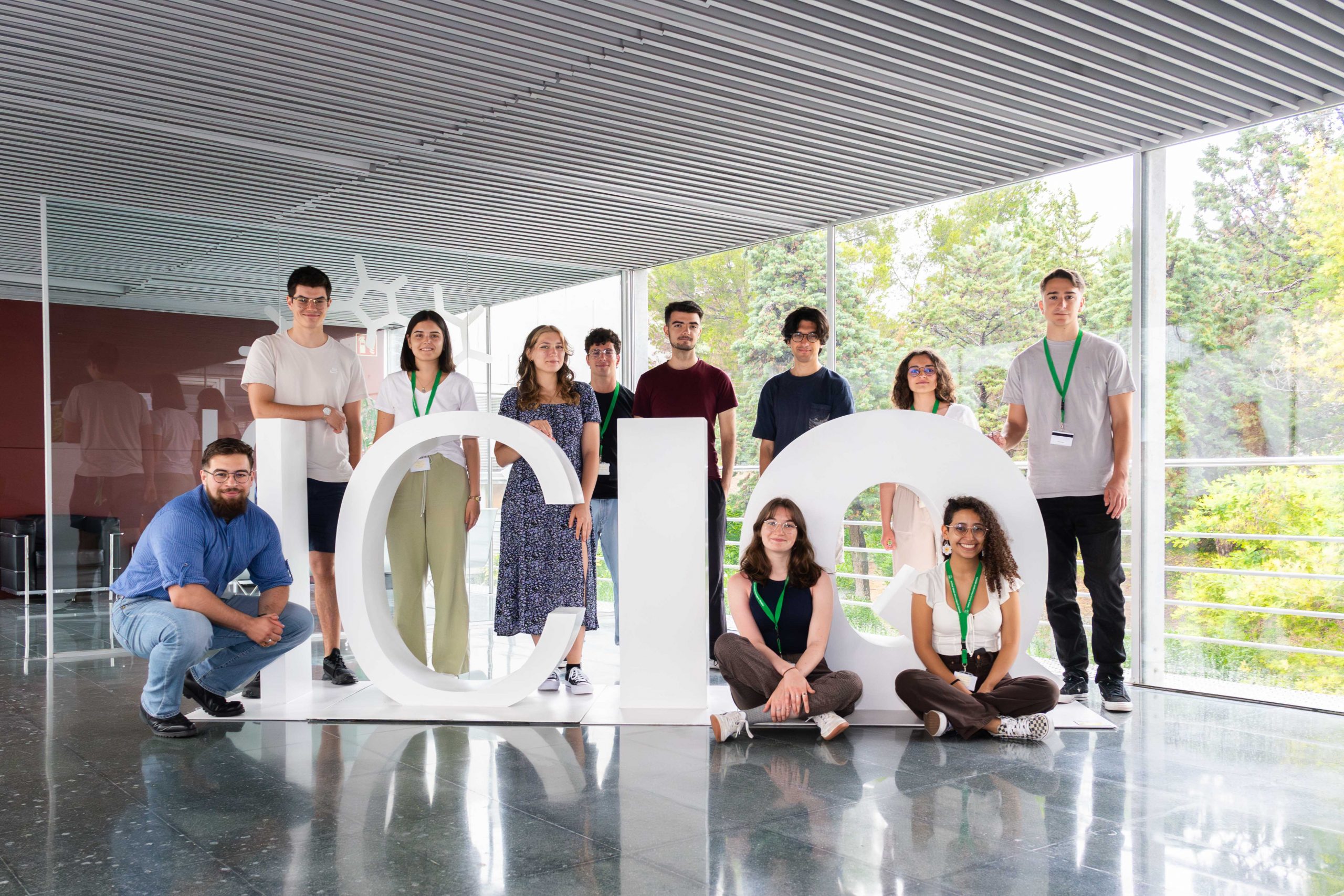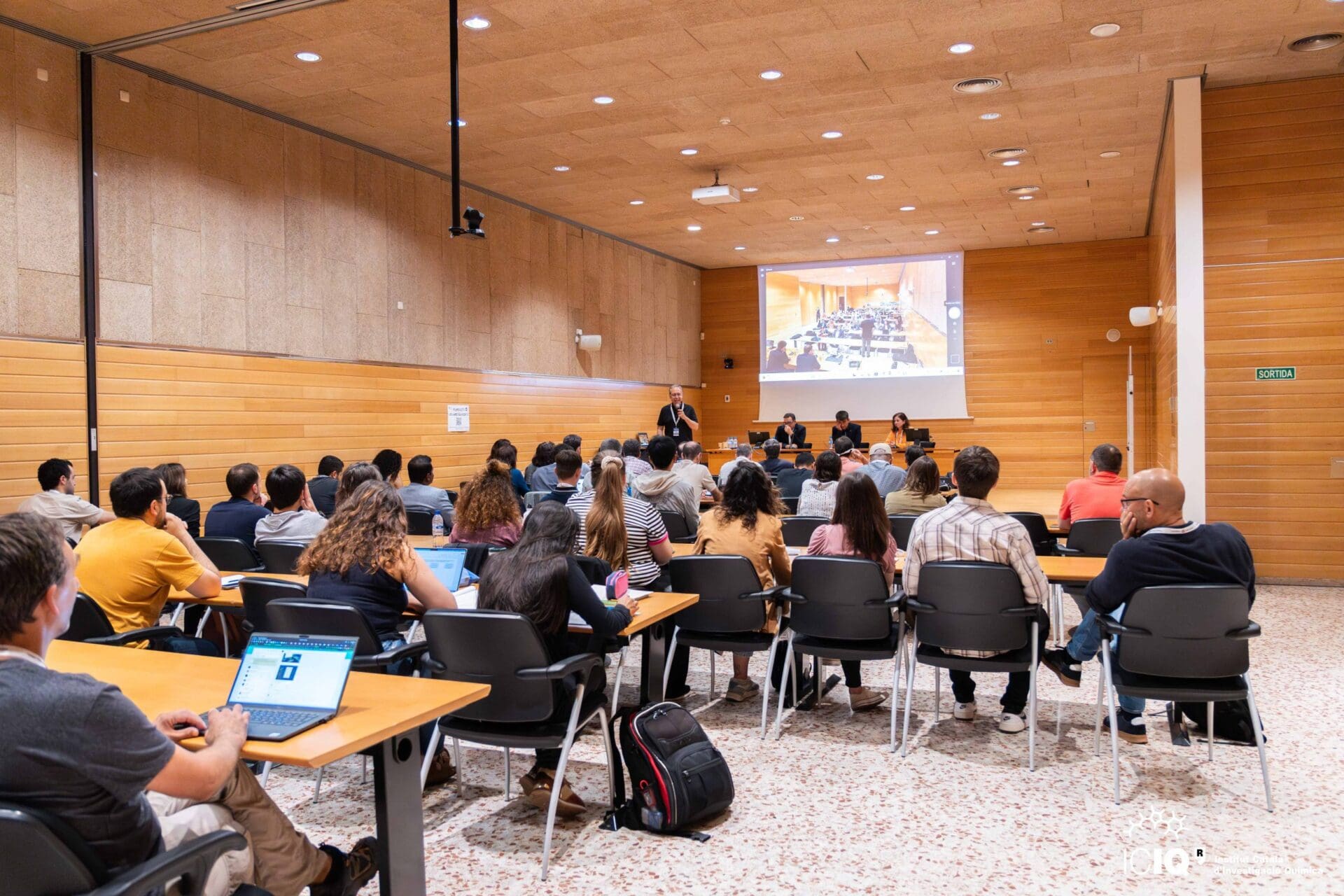Face to Face with Julio Lloret-Fillol
 Dr. Lloret-Fillol obtained his PhD from Universidad de Valencia in 2006. Then he moved to the University of Heidelberg where he stayed four years as a postdoctoral researcher. Since 2010 he has been working as independent research leader at Universitat de Girona and, in November 2014, he joined ICIQ as group leader through CELLEX-ICIQ Starting Career Programme. This year, he has been awarded an ERC Consolidator Grant to develop his project ‘Towards a Greener Reduction Chemistry by Using Cobalt Coordination Complexes as Catalysts and Light-driven Water Reduction as a Source of Reductive Equivalents’. This project aims to merge the concepts at the edge of the fields of solar fuels production and catalytic transformation facilitated by coordination complexes to perform light-driven catalytic transformations of organic substrates.
Dr. Lloret-Fillol obtained his PhD from Universidad de Valencia in 2006. Then he moved to the University of Heidelberg where he stayed four years as a postdoctoral researcher. Since 2010 he has been working as independent research leader at Universitat de Girona and, in November 2014, he joined ICIQ as group leader through CELLEX-ICIQ Starting Career Programme. This year, he has been awarded an ERC Consolidator Grant to develop his project ‘Towards a Greener Reduction Chemistry by Using Cobalt Coordination Complexes as Catalysts and Light-driven Water Reduction as a Source of Reductive Equivalents’. This project aims to merge the concepts at the edge of the fields of solar fuels production and catalytic transformation facilitated by coordination complexes to perform light-driven catalytic transformations of organic substrates.
When did you decide to become a scientist and why?
It was when I was a kid. I used to watch science programs on Saturdays in the morning and I remember the moment I noticed that science could help solve the problems of humanity. Then I decided that the best job a person could devote oneself to was to be a scientist.
What do you like and enjoy the most in your job?
What I enjoy the most is to solve problems. The moment when I see the solution to a problem in which I have been working for a long time and that was really complicated. I think that’s what gives more satisfaction to most scientists. I also like the opportunity to meet other scientists, to work with students and to keep learning new things. It is not routine but different every day and that’s great.
Which are the greatest achievements in you career so far?
I believe that they are still to come.
From your point of view, what are the most important areas in which funding should be spent on?
It is a difficult question but I would say all areas of well-performed basic science are important. Lately, applied science is getting all the attention and I think basic science should be enhanced. The great advances of today come from basic research done 50 or 100 years ago, likewise, great advances of the future are today’s basic science.
What does the ERC Consolidator Grant mean to you?
It’s a dream. The ERC CoG allows me to strengthen the scientific independence I got when I came to ICIQ. Having more resources will make things easier, setting up a research group, carrying out the projects I have in mind… And it’s also a recognition.
Could you give a piece of advice to young researchers who want to become excellent researchers in their fields?
I would tell them to work hard. I think the key is to have enthusiasm, be clear about what they want to do, visualize it and go for it, and work hard because without work they will not get it. Science is not a sprint but a long-distance race.
What do you do in your spare time (if you have any)?
I don’t have much free time. I like playing sports (mostly cycling and jogging), visiting friends, watching movies. I like going to the cinema very much, but as I said I have very little free time.
PROUST/ICIQ QUESTIONNAIRE
A chemical element: Iron
Favourite Scientist: Einstein
Your favourite invention: The microprocessor
If you had not been scientist… I would have been astronaut
Favourite destination: My home
A book: Do androids dream of electric sheep?
A movie: Contact
A dream: Strengthen the research group. I have the capabilities and now I have to prove that everything works
Science is… the best way we have to access understanding reality
Related news

Let's create a brighter future
Join our team to work with renowned researchers, tackle groundbreaking
projects and contribute to meaningful scientific advancements






 19-09-2024
19-09-2024 


















